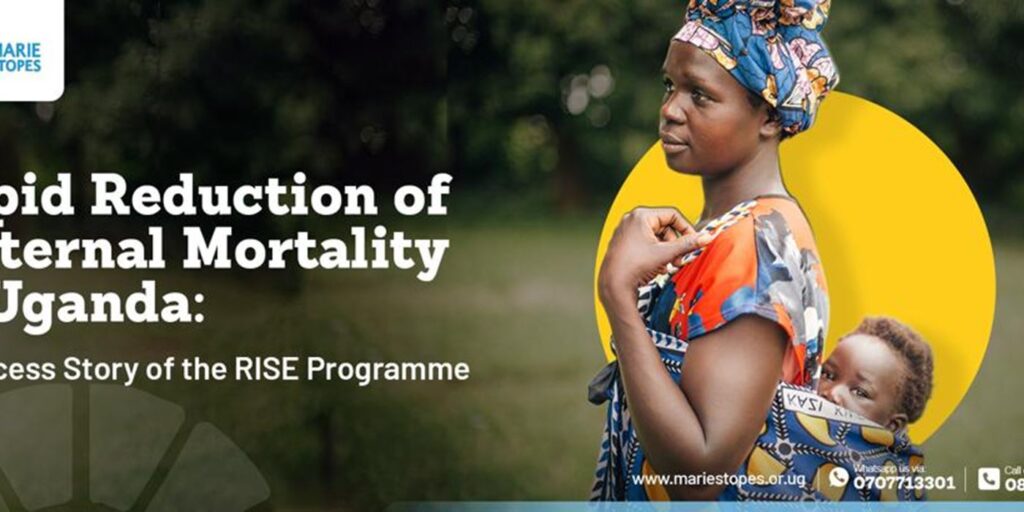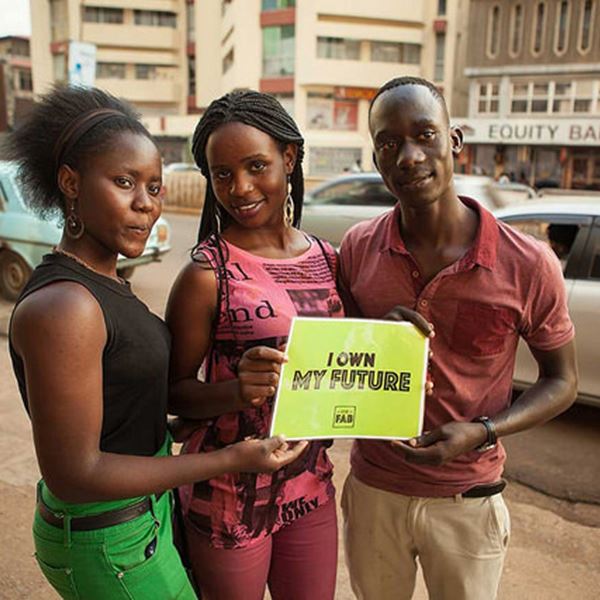
Rapid Reduction of Maternal Mortality in Uganda: A Success Story of the RISE Programme
The RISE Programme, a groundbreaking initiative aimed at combating maternal mortality and enhancing sexual reproductive health outcomes in Uganda, has made remarkable strides since its inception in 2018. Supported by UKAID and led by Marie Stopes Uganda, in collaboration with esteemed partners such as Makerere School of Public Health, FHI 360, Reach a Hand Uganda, Options Consultancy Services, and Partners in Population and Development Africa Regional Office (PPD ARO), the programme has been instrumental in transforming the landscape of Reproductive health in Uganda.
Unveiling the Challenges
The 2022 Uganda Demographic and Health Survey uncovered a concerning reality – teenage pregnancy rates in Uganda were staggering at 24%, one of the highest in Sub-Saharan Africa. This alarming statistic translated to approximately one in every four teenage girls between the ages of 13 and 19 having either experienced a live birth or being pregnant with their first child. The repercussions were dire, contributing to a 20% increase in infant deaths and a staggering 28% rise in maternal mortality. These numbers painted a grim picture, highlighting the urgent need for intervention.
Addressing the Root Causes
The prevalence of teenage pregnancies was not merely a statistic but a reflection of the limited access to sexual reproductive health information and the scarcity of adolescent-friendly services and support. Inadequate capacity among health workers and facilities to provide comprehensive information and services further exacerbated the situation. The need for a comprehensive, sustainable solution was undeniable.
The Rise of RISE Programme
The beacon of hope amidst these daunting challenges. With a mission to reduce maternal mortality rates and improve sexual reproductive health outcomes, the programme set out to make a tangible difference in the lives of Ugandan women. Over the years, RISE has not only met but exceeded expectations, marking a significant reduction in maternal mortality rates from 336 to 189 per 100,000 live births. This remarkable progress has been a testament to the unwavering dedication and collaborative efforts of all involved.
A Glimpse into Success
The impact of the RISE Programme extends far beyond statistics. Through targeted interventions, over 2 million clients accessed contraception, preventing a staggering 971,000 unintended pregnancies. Furthermore, the programme played a pivotal role in averting 2800 maternal deaths, underscoring its profound impact on saving lives and securing the well-being of women across Uganda. Equally significant is the training provided to over 1,500 health workers, equipping them with the knowledge and skills to deliver high-quality contraceptive services.
Looking Ahead
As the RISE Programme continues to unfold, its influence reverberates across communities, instilling hope and fostering positive change. With the unwavering support of its partners and stakeholders, RISE is poised to build on its achievements and further enhance access to reproductive health services, ultimately working towards the ambitious goal of reducing maternal mortality rates to zero in the communities it is being implemented in.








